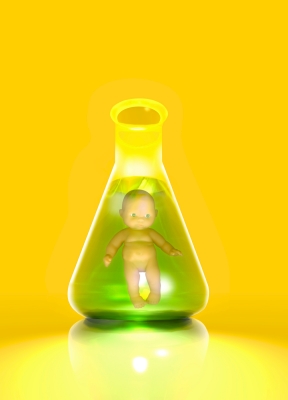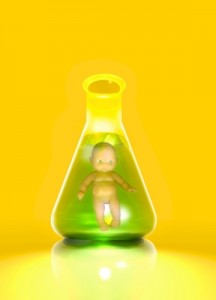
 On February 5, 2013, New York Times columnist Mark Bittman wrote an article entitled “Cosmetics Wars.” I’d like to bring it to your attention for two reasons:
On February 5, 2013, New York Times columnist Mark Bittman wrote an article entitled “Cosmetics Wars.” I’d like to bring it to your attention for two reasons:
1. He notes that if all goes according to plan, next month the European Union will become “cruelty-free,” banning the sale of all cosmetic ingredients that were tested on animals.
2. He reminds us that human beings are mammals as well, and right now, we’re all guinea pigs in the giant chemical experiment that is the cosmetics industry.
How Companies Are Using Us as Test Subjects
Most of us don’t like the idea of animals being subjected to cruel studies and tests, and so the fact that the EU may soon be putting a stop to it is welcome news.
Meanwhile, what about human beings? Bittman reminds us that, according to the Environmental Working Group (EWG), our personal care and cosmetic products are produced with over 10,500 different chemicals, and only about a fifth of those have been assessed for safety by the industry. That means that thousands of these chemicals haven’t been thoroughly tested, yet we’re exposed to them repeatedly day after day.
We already know that formaldehyde and 1,4-dioxane, which are by-products in many of our nail polishes, shampoos, body washes, hair products, and bubble baths, are known carcinogens. We know that phthalates are hormone disruptors and have been linked with diabetes, and that CDC testing has determined they’re widespread in the population. We know that parabens have been found in breast tissue. We know that many lipsticks contain lead.
And that’s just what we know. What about all those chemicals that haven’t been tested? The FDA doesn’t regulate these ingredients. In our country, it’s up to the companies themselves to ensure the safety of what they’re using.
Couldn’t We File Lawsuits?
Bittman acknowledges that we can always file lawsuits against companies that create harmful products, but the problem is that it’s difficult to trace the damage these chemicals may be doing to us. We’re using very small amounts over a very long period of time, and it’s extremely difficult to set up a scientific experiment to show whether such exposure is hurting us. First, we’d have to get rid of all other possible sources of chemicals in the lives of the participants, then ask a group of people to do nothing but stay in one place using these products over a period of several years. Not likely to happen.
Two guys came close when they decided to spend a week in a condo surrounded by typical contaminants. In Slow Death by Rubber Duck, they demonstrated that personal care products, plastic containers, metal cans, soaps, toothpastes and deodorants raised their blood and urine levels of chemicals like phthalates, triclosan and BPA.
Beyond these types of personal trials, however, it’s extremely difficult to get reliable scientific evidence on our long-term exposure to these products-thus, extremely difficult to put together any sort of evidence we could use in court.
Bittman offers another idea, however. Why not just require that all manufacturers use only those ingredients that have been tested and determined to be safe?
A Step in the Right Direction
On February 1, 2013, I announced in a post that consumer products giant Proctor & Gamble had agreed to significantly reduce the levels of 1,4-dioxane in their laundry products (like Tide). Earlier, in August 2012, we found out that Johnson & Johnson had agreed to remove potentially dangerous chemicals like formaldehyde, phthalates, triclosan, parabens, and fragrance ingredients from their products by 2015.
These are all steps in the right direction. Bittman suggests another idea:
“But there’s a more sensible solution, and that is to use only known-to-be-safe ingredients in all products that come in contact with humans. Using questionable ingredients may be in the interest of manufacturers, but it certainly isn’t in the interests of consumers.”
Bittman goes on to say that we need to encourage our representatives to empower the FDA to safeguard us against unsafe ingredients as well as unknown ones. “After all,” he says, “we’re animals in need of protection, too.”
By the way, there are some companies (like CV Skinlabs) that are already employing this approach-using only safe ingredients that are nourishing and good for the skin and body. (And avoiding animal testing as well, by the way.) Until regulation catches up, our best bet is to continue to use our buying power to support these types of companies. Affecting the bottom line of the big corporations is the best way to encourage change.
What do you think of Bittman’s column? Have you changed your approach to buying cosmetic products?
Picture courtesy Victor Habbick via freedigitalphotos.net.

